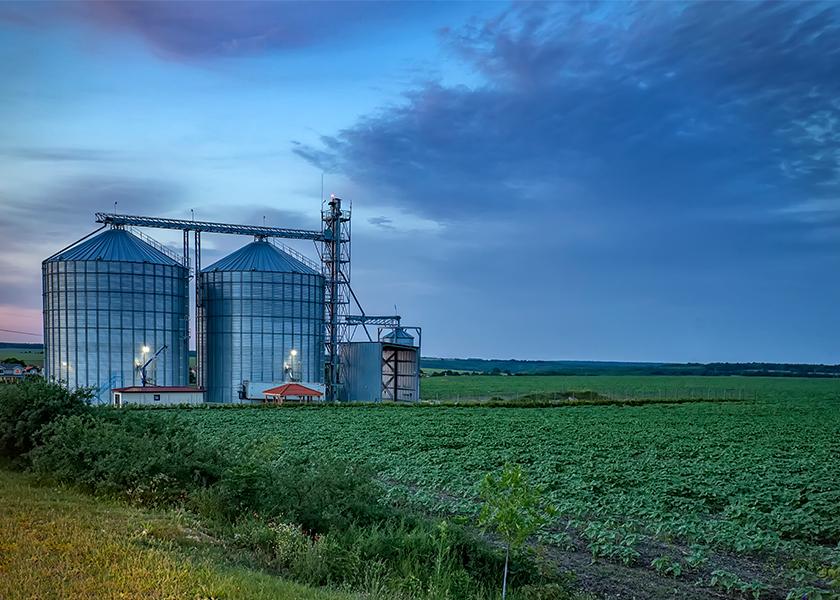Evening Report | September 16, 2022

Check our advice monitor on ProFarmer.com for updates to our marketing plan.
Cotton hedgers: Add 2022-crop hedges… Cotton futures posted a downside breakout from the recent consolidation range, which opens sharp downside risk. We advise cotton hedgers to hedge 30% of 2022-crop in short December futures to get to 100% covered on new-crop production. Our fill was 99.58 cents.
Your Pro Farmer newsletter is now available... The September crop estimates came in lower than expected for both corn and soybeans as USDA cut yields and harvested acreage. That cut 2022-23 ending stocks more than anticipated and lowered them the “pipeline” levels. The extended forecast from the National Weather Service suggests harvest and fall fieldwork should progress relatively uninterrupted, but the hot and dry conditions would be a concern for the HRW wheat crop that’s being planted into dry soils. We take a longer-term look at corn and soybean price action and the close similarities between 2010-2014 and 2020 to date – and what that could mean for prices into 2023-24. On the economic front, last week’s hotter-than-expected U.S. consumer inflation data all but seals up at least a 75-basis-point increase to interest rates this week and suggests the Fed’s battle against rising prices could last longer than expected. We cover all of these items and much more in this week’s newsletter, which you can access here.
Update on rail deal... Following is an update to the deal reached between railroads and unions earlier this week to avert a railroad strike:
- Union members hold final say on us rail deal, or possible strike. Marathon talks led to a tentative agreement Thursday. What happens next depends on more than 100,000 workers represented by a several different unions, who’ll have to decide whether to ratify their leaders’ deals or reject them, setting the stage for a massive work stoppage.
- The tentative deal, the text of which hasn’t been publicly released, included record wage increases and new protections but didn’t include paid sick days workers had sought, according to union leaders. The tentative freight-rail agreements include a 24% wage increase over five years, 2020 through 2024, including 14.1% effective immediately, as well as five annual $1,000 payments, the National Carriers’ Conference Committee said.
- The cooling-off period in which work stoppages are prohibited has been extended to last several weeks past when workers vote to accept or reject its terms, White House press secretary Karine Jean-Pierre said. A timeline for those votes has not been released.
- The dilemma: Union members are likely to weigh the viability of pulling off a successful strike and the political impact it could have before the midterm elections, as well as how much the tentative deal does to address their core concerns, said Wilma Liebman, a former deputy director of the Federal Mediation and Conciliation Service and former chair of the National Labor Relations Board.
- Another try: The International Association of Machinists and Aerospace Workers union says it is now working to get a new agreement after its members rejected a tentative deal that had been struck earlier.
- Some agreement: The BLET, the International Association of Sheet Metal Air, Rail & Transportation Workers, and the Brotherhood of Railroad Signalmen have all now agreed to the tentative pact, according to the National Carriers’ Conference Committee, which represents national freight railways in bargaining. Together, the three speak for about 60,000 workers, it said in a statement.
- Feel the Bern? Sen. Bernie Sanders (I-Vt.) said in a statement: “Now it’s up to the rank-and-file union members to evaluate this deal and determine whether it works for them. These workers have not had a raise in three years and continue to work incredibly long hours under brutal working conditions. I will respect and support whatever decision they make.”
- Freight railroads immediately restored services they had suspended earlier in the week. Union Pacific Corp. and Norfolk Southern Corp. said they are working to resume normal operations after halting some service in anticipation of a work stoppage.
- Bottom line: The deal, if approved, could raise shipping costs as railroads try to recoup their added labor costs, analysts said. But it could improve service, which has suffered from capacity and labor shortages.
Putin: Small amount of Ukrainian grain going to poor countries... Less than 5% of the grain exported from Ukraine was sent to the world's poorest countries, according to Russian President Vladimir Putin. “Out of 120 ships [leaving Ukrainian ports], only three were sent to the poorest countries under the UN food program. About 35%, maybe a little more, of the grain exported from Ukraine went to European countries. Not to the poor countries, and certainly not to the poorest countries in the world. And only 4.5% went to the poorest countries under the UN program," Putin said. He also noted that most of the grain exported from Ukraine belongs to American companies that own land there.
He contends: “Americans, by the way, are pragmatic people. When we talk about exporting grain from Ukraine, do you know who exports it? American companies. They own this grain to a large extent. It turned out that the lands in Ukraine were sold to American companies a long time ago, this is their grain, they export their grain.”
Argentine drought will impact crop acreage... Argentine wheat farmers planted less wheat than intended and are already starting to abandon some of the acres they seeded amid the driest conditions in 30 years. Severe drought is also delaying early corn planting efforts. Drought, extreme inflation and financial hardship point to more soybean acres at the expense of wheat and corn, according to Crop Consultant Dr. Michael Cordonnier.
U.S. gas producers struggle to meet demand... U.S. shale drillers are struggling to meet strong demand for gas from domestic generators as well as customers in Europe and Asia scrambling for replacement supplies following Russia’s invasion of Ukraine, according to Reuters. Working inventories in underground storage amounted to 2,771 billion cubic feet on Sept. 9, the second lowest for the time of year since 2010, according to data from U.S. Energy Information Administration (EIA).
Storage has been below the pre-pandemic five-year average continuously since late January and the deficit has shown no sign of closing despite prices well above long-term averages. U.S. generators are burning record volumes of gas because coal-fired units have been retired and drought has limited hydroelectric output in the western states. At the same time, exports are running at record rates as new LNG liquefaction terminals meet soaring demand from importers in Europe and Asia.
The low level of inventories means there are few shock absorbers; the system will quickly come under pressure if this winter’s drawdown is towards the top end of the historic range or exceeds it.
World Bank cautions against too-aggressive monetary policy tightening... The World Bank says central banks need to be careful about raising interest rates so rapidly that they cause a global recession. Policy makers around the world have been pushing up borrowing costs to tame surging prices worldwide. Global growth is already cooling and tighter monetary policy risks accelerating the slowdown, a World Bank report said.
Broiler settlement forms arriving to growers... Southern Ag Today reports: “Poultry growers may have started to receive settlement forms recently for a broiler grower class action lawsuit settlement. Defendants involved in the lawsuit include Koch Poultry, Pilgrim’s Pride, Sanderson Farms, Tysons, and Perdue, and several co-conspirators, including Agri Stats, Foster Farms, Mountaire Farms, Wayne Farms, George’s, Inc., Peco Foods, Inc., House of Raeford Farms, Simmons Foods, Keystone Foods, Fieldale Farms Corp., O.K. Industries, Case Foods, Marshall Durbin Companies, Amick Farms, Inc., Mar-Jac Poultry, Inc., Harrison Poultry, Inc., and Claxton Poultry Farms. At this point, Perdue and Tyson have not agreed to the settlement, but their growers are still included in the settlement process. Growers might be surprised to receive this form in the mail and may have questions about the case and settlement. There is a website designed to answer questions about the settlement process, which includes many important deadlines for broiler growers. Answers to many of the important questions growers may have, including how much money each grower will receive and whether additional integrators will, are currently unknown.”






